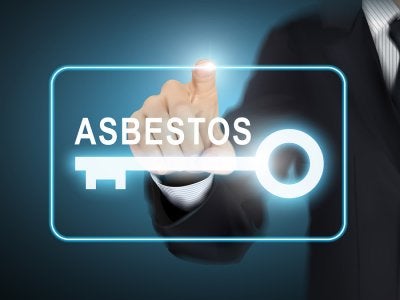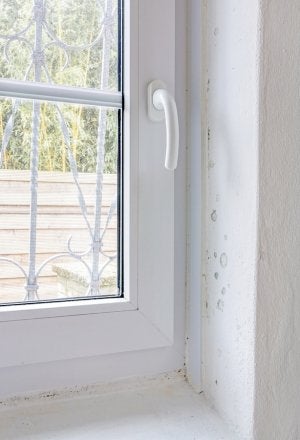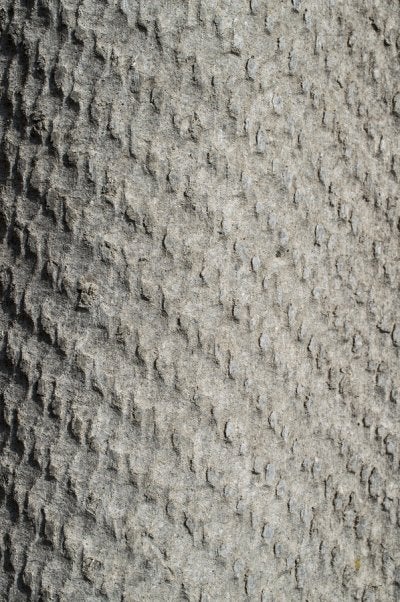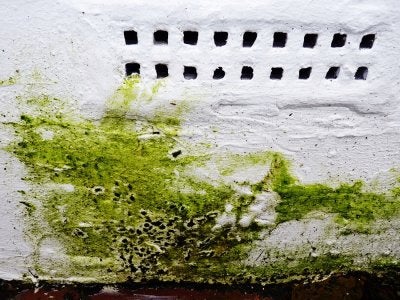-
A Look at FAQs About Asbesto
People who are familiar with diseases like mesothelioma are commonly worried about asbestos exposure in San Francisco. The EPA and CPSC have banned the use of most asbestos products in construction, but cutting or disturbing materials that contain these harmful fibers can lead to severe health issues. If you suspect your home may have asbestos, schedule a professional asbestos test before beginning any home improvement projects.
What is Asbestos?

Asbestos is a mineral fiber that was used in a variety of construction materials beginning in the early 1900s and up until the late 1970s. Asbestos was also used by most branches of the U.S. Armed Forces as insulation for vehicles, ships, and aircraft. The name asbestos describes a group of naturally occurring mineral silicates that crystallize into bundles of thin filaments. Asbestos cannot be identified visually and must instead be sampled, tested, and analyzed by a qualified professional.
How Can I Be Exposed to Asbestos?
Areas in proximity to asbestos mines can have higher concentrations of asbestos particles in the air due to weather and erosion inside the excavation tunnels. However, most people suffer asbestos exposure when nearby asbestos-containing construction materials are disturbed in some way. Drywall, insulation, floor and ceiling tiles, paint, and cement are just a few of the products that were once made using asbestos fibers. Asbestos exposure typically occurs after inhaling contaminated air.
What are the Health Effects of Asbestos Exposure?
When asbestos fibers are inhaled, most of them are removed through exhalation and coughing. If the body’s defenses fail to eliminate all of the fibers from the lungs, inflammation and scarring caused by the trapped particles can lead to decreased lung function. Long-term exposure to asbestos can cause lung cancer, mesothelioma cancer, asbestos cancer, asbestosis, lung disease, or chronic obstructive pulmonary disease. In most cases, it takes as long as 20 or 30 years for the harmful effects of asbestos exposure to manifest. Today, approximately 2,000 to 3,000 Americans are diagnosed with mesothelioma annually, and the same number die each year due to asbestos-related lung cancer.
-
The Steps of Asbestos Testing
Asbestos exposure can cause serious, long-term health problems, so it’s important for your home to undergo professional asbestos testing in San Francisco if you exhibit asbestos symptoms. Only an expert in environmental and indoor air quality testing should perform asbestos testing. Here’s a look at the basic steps of preparing for and undergoing asbestos testing.
Identify a Risk of Asbestos Exposure

If you or anyone else in your household exhibits signs of asbestos exposure, or common asbestos symptoms, you’ll need professional asbestos testing in your home. If your home was constructed between 1920 and 1989, it may have been built with building materials that contain asbestos. These building materials include walls, flooring, pipes, textured paints, insulation, fireproofing materials, and electric wiring. When construction materials that contain asbestos begin to break down, the asbestos will become airborne, resulting in increasingly serious asbestos symptoms if the fibers are inhaled.Hire an EPA-Approved Asbestos Tester
If you’ve identified areas of your home that put you at risk for asbestos exposure, such as disintegrating pipes, insulation, walls, tiles, or vinyl flooring, you must hire an EPA-approved asbestos tester. A professional asbestos tester is trained and licensed in safely handling and analyzing asbestos particles according to EPA regulations. Your asbestos tester will provide samples to an EPA-certified lab for analysis. You’ll then be informed as to whether you and your family are at risk for asbestos exposure.Be Aware of the Asbestos Testing Procedure
EPA-certified asbestos contractors follow very strict procedures when performing asbestos testing. This procedure ensures safety, minimizes the risk of asbestos exposure, and ensures consistency in acquiring asbestos testing results. Anyone at risk of asbestos exposure must wear protective gear when in the room. The room is protected with plastic sheeting, and the area is sprayed with water to prevent airborne asbestos particles. Small samples of material are placed in an airtight container for testing. The sample area is contained to prevent asbestos particles from spreading. The protective gear that is contaminated by asbestos is placed in a sealed container and disposed of according to EPA regulations. -
Why is Lead Exposure Dangerous?
Exposure to lead or lead paint in San Francisco can cause dangerous symptoms of lead toxicity, particularly in young children. Lead-based paint can deteriorate over time and become airborne, significantly decreasing your home’s indoor air quality. When you inhale lead paint particles, you are at risk for lead toxicity or lead poisoning symptoms.
Watch this video to learn more about the dangers of exposure to lead and lead-based paint. If you suspect that your home contains lead pipes or lead paint, you should hire an expert for lead testing and lead abatement. Lead poisoning symptoms in children may include developmental delays, learning difficulties, weight loss, hearing loss, sluggishness, irritability, abdominal pain, vomiting, and constipation. Lead poisoning symptoms in adults include high blood pressure, cognitive problems, muscle pain, joint pain, headaches, memory loss, mood disorders, abdominal pain, constipation, and reproductive problems.
-
Reasons to Hire Safe Air Fast
At Safe Air Fast, our highly trained, experienced contractors are experts in toxic mold testing, asbestos testing, lead testing, and testing and maintaining indoor air quality near San Francisco . If you’re worried about asbestos, lead paint, or mold in your house, you should contact us immediately for a professional, thorough indoor air quality evaluation. If asbestos, lead paint particles, or airborne toxic mold or black mold spores compromise your indoor air quality, you and your family can suffer serious health problems.

When you need immediate testing and remediation services, it’s important to hire contractors who are skilled and experienced to restore the indoor air quality of your home and maintain your family’s safety. Our contractors have over 10 years of experience in environmental testing, indoor air quality testing, and bacteria testing.
We’re committed to staying on top of the latest and most advanced methods of maintaining the indoor air quality of our community, and protecting residents from symptoms of mold exposure, asbestos exposure, and lead toxicity. We use high-tech equipment to perform asbestos, lead paint, and mold inspections. We also provide safe, efficient asbestos, lead, and mold remediation services to restore your home.
-
A Look at the Benefits of Scheduling a Mold Inspection
If you suspect that you have mold in your house in San Francisco , it’s important to hire an expert in mold remediation to perform a professional mold inspection. Symptoms of mold exposure can be incredibly serious, particularly exposure to toxic black mold. Here is a look at the key benefits of hiring a mold remediation expert to perform a mold inspection and black mold testing in your home.
Prevent Serious Symptoms of Mold Exposure

Mold symptoms, particularly black mold symptoms, are dangerous, and can even be life threatening. If you or anyone in your household is already ill or suffers from an autoimmune disease, you’re at a higher risk of dangerous symptoms of mold exposure. Symptoms of mold exposure can be as mild as allergies, skin rashes, and common cold symptoms. Black mold symptoms can include serious respiratory problems and infections, asthma complications, chronic headaches and fatigue, dangerous neurological problems, and toxic mold syndrome.Improve Indoor Air Quality
When the mold in your house becomes airborne, your indoor air quality significantly declines. Mold exposure and mold symptoms occur when mold spores are inhaled from the air and settle in the lungs or nasal passages. A mold remediation expert can test your indoor air quality for signs of mold spores. He can also perform an extensive mold inspection to look for signs of mold growth throughout your home. If he finds mold in your house, he will perform professional mold testing, including black mold testing, to see if you are at risk for toxic mold exposure.Reduce Your Risk of Structural Damage to Your Home
Mold growth occurs in areas that are damp and warm. This means that mold might grow in areas of your home that aren’t immediately visible, such as behind walls or wallpaper, behind or underneath plumbing fixtures, in flooring or ceiling tiles, and behind or underneath appliances. Water damage and mold growth can cause problems with wooden structures, insulation, and electrical wiring in your home. A mold inspection and mold remediation will reduce or prevent serious structural damage. -
Getting Rid of Household Mold
Not only is household mold an unpleasant thing to live with, but it also can pose a serious health risk, especially for those who suffer from respiratory issues such as asthma or COPD (chronic obstructive pulmonary disease). If you have mold growing in your home, contact an experienced professional who specializes in mold inspection and mold remediation in San Francisco.
One effective way to get rid of mold is to reduce the amount of moisture inside your home. Watch this video to find out what else you can do if you suspect mold in your home, or if you’re experiencing symptoms of mold exposure.
-
Asbestos Exposure and Your Health
In this day and age, most people are aware of how prolonged asbestos exposure can adversely affect the health of humans. When inhaled, asbestos in San Francisco can wreak havoc on the lungs and cause cancer, among other things. If you live in a home with asbestos in San Francisco , you should hire a licensed and experienced professional to perform an asbestos test, and then to get rid of it. Though it may end up being a costly project, having all of the asbestos removed from your home is well worth the money.
What Asbestos Is

Asbestos is an umbrella term used to classify any member of a group of naturally occurring silicate minerals that form long, ultra thin, and fibrous crystals. Since these minerals are invulnerable to high temperatures and are fire-resistant, they were popularly used as construction materials for homes and offices.Asbestos and Cancer
Since asbestos is a known carcinogen, it fell out of favor in the late 1970s. Because its fibrous crystals are microscopic and can become airborne, asbestos can be easily breathed in, and can cause a lung and abdominal cancer called mesothelioma. Asbestos can also be responsible for other cancers such as lung cancer, laryngeal cancer, ovarian cancer, and testicular cancer. Once inside the body, asbestos crystals are often found trapped in the lining of the lungs, abdomen, and heart. Asbestos fibers can cause a lot of damage to human tissues, and this damage is the precursor to mesothelioma and other cancers.Asbestos Exposure
Most people who develop mesothelioma or asbestos-related cancer had industrial jobs, and were exposed to asbestos in their workplace—that is, construction sites, power plants, chemical plants, shipyards, auto body shops, old schoolhouses, and boiler rooms.Other Diseases Caused by Asbestos
Prolonged and repeated asbestos exposure may cause other diseases. One such disease is an inflammatory lung condition called asbestosis—symptoms include coughing, shortness of breath, and lung damage. Asbestos can also cause benign growths such as pleural plaques and pleural effusions. -
The Dangers of Waiting to Test Your Home
Your home is a place that you and your family should feel comfortable and safe in. If you’re in the market to purchase a new home, or if you’ve lived in your current house for years without knowing what’s on or behind its walls, consider hiring a professional to administer an asbestos, lead paint, or mold test in San Francisco as soon as possible. Older homes, especially those built before the 1970s, tend to have evidence of these toxic agents.
There are real dangers associated with waiting to test your home. Prolonged asbestos exposure can lead to serious health problems such as lung disease and mesothelioma. Dust from deteriorating lead paint can circulate throughout your home, and may end up in your lungs or in your drinking water—children and pregnant women are particularly susceptible to lead poisoning. Mold infestations, especially black mold infestations, can cause a whole host of health problems ranging from being benign to being potentially fatal. Symptoms of mold exposure include watery eyes, itching, sneezing, cough, asthma, fatigue, and brain and nerve damage.

-
Understanding the Mold Testing Process
No one wants to live in a home, or work in an office, that is filled with mold. Luckily, there are ways to test for mold. If you suspect that you may have mold growing in your home, don’t hesitate to contact a mold remediation professional in San Francisco to schedule an inspection and a mold test .
Common Types of Mold Found in Homes

Knowing how to identify mold is your first line of defense against it. When mold is growing out in the open, it’s pretty easy to recognize—it looks like dark-colored fuzz, usually occurring in clusters or spotted patches speckled across a surface. There are three types of mold that are commonly found in homes: Aspergillus , Cladosporium , and Stachybotras . The first two are relatively harmless, mainly responsible for minor allergic reactions and lung issue. Stachybotras , on the other hand, can really be cause for concern. Known as toxic black mold, Stachybotras can pose a serious health risk, and may send you to the emergency room if you’ve been continually exposed to it for a steady period of time. If you have black mold in your home, you need to call a mold remediation expert immediately.Testing for Mold Using Store-Bought Test Kits
Ideally, when testing your home for mold, you want to perform the test before a deep cleaning, and then again afterward to make sure that you’ve eradicated the problem.You can readily purchase a mold test kit at your local hardware or home-improvement store. These kits are fairly straightforward to use, usually requiring homeowners to send prepared samples to a laboratory. They range in prices depending on the companies and how involved the tests are. Be forewarned – these test kits have been known to be unreliable.
Hiring a Professional
For peace of mind, hire a professional mold specialist to test your home. Only a trained technician has the knowledge and proper equipment to perform a comprehensive and accurate test. -
The Dangers of Lead Paint
The U.S. Product Safety Commission banned the use of lead-based paint in houses and public buildings in 1977. Unfortunately, there were no such rules or regulations that required homes and buildings that already contained lead-based paint to receive any type of abatement. That’s why it’s important for anyone who lives or works in a building that dates prior to 1977 schedule lead-based paint testing. Watch this video to learn more about the dangers of lead paint, testing for lead-based paints, and why you need to hire a certified lead abatement professional to remove any lead substances found in your home or business.
If you’re at all concerned about lead exposure in your home or business, contact an environmental testing company in San Francisco and schedule a lead inspection as soon as possible. Lead testing will reveal the presence of this deadly metal in your home or business, at which time you can seek out lead abatement to protect your family or your employees and customers. For immediate residential or commercial lead testing in the Bay Area , call Safe Air Fast at (916) 459-1069.
RECENT POSTS
categories
- Uncategorized
- Lead
- Mold
- San Francisco Mold & Asbestos Removal
- Indoor Air Pollution
- Mold Remediation
- Asbestos
- Safe Air Fast
- Mold Inspection
- Remediation
- Bacteria Testing
- Asbestos Testing
- Abatement
- Lead Testing
- Sewer Line
- Lead Survey
- Mold Testing
- Air Quality Inspection
- Home renovations
- Allergies
- Renovation Contractor
- Infographic
- lead paint
- Air Quality
- Air Quality Test
- Mold removal